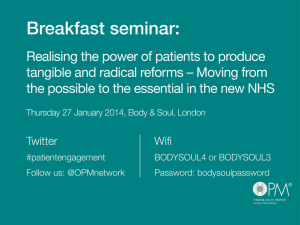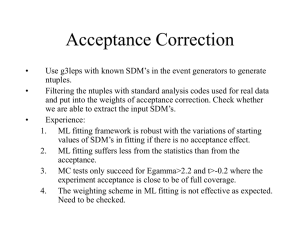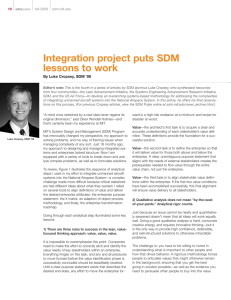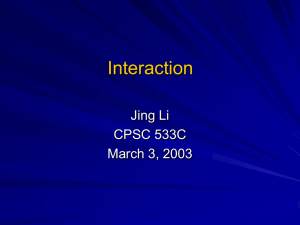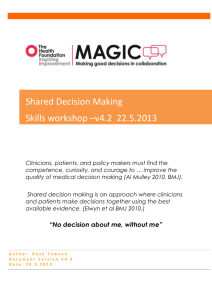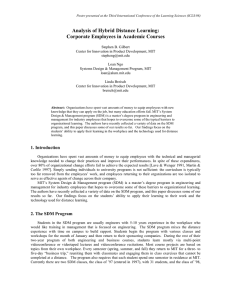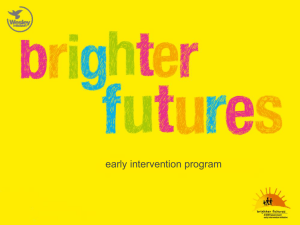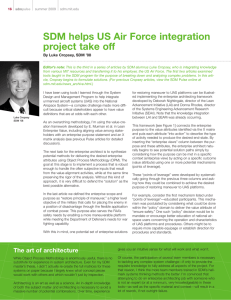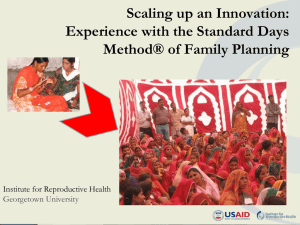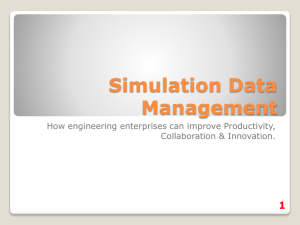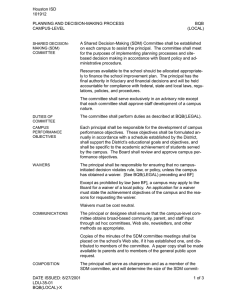Interview Schedule: Shared Decision Making & MAGIC Program
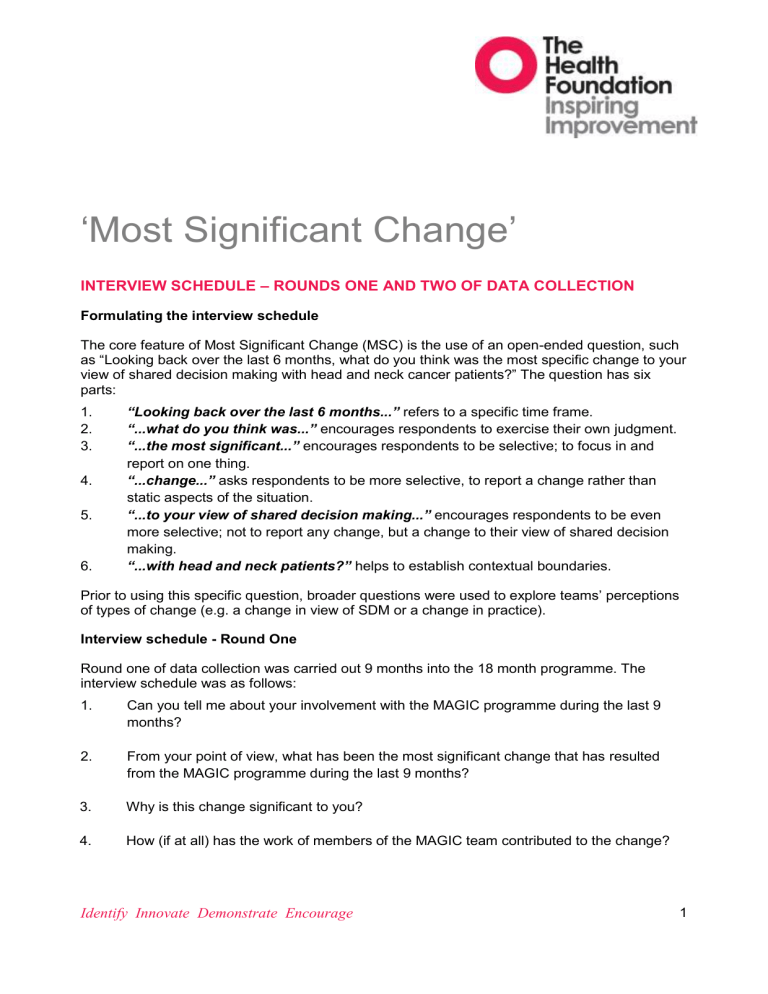
‘Most Significant Change’
INTERVIEW SCHEDULE – ROUNDS ONE AND TWO OF DATA COLLECTION
Formulating the interview schedule
The core feature of Most Significant Change (MSC) is the use of an open-ended question, such as “Looking back over the last 6 months, what do you think was the most specific change to your view of shared decision making with head and neck cancer patients?” The question has six parts:
1.
2.
3.
4.
5.
6.
“Looking back over the last 6 months...” refers to a specific time frame.
“...what do you think was...” encourages respondents to exercise their own judgment.
“...the most significant...” encourages respondents to be selective; to focus in and report on one thing.
“...change...” asks respondents to be more selective, to report a change rather than static aspects of the situation.
“...to your view of shared decision making...” encourages respondents to be even more selective; not to report any change, but a change to their view of shared decision making.
“...with head and neck patients?” helps to establish contextual boundaries.
Prior to using this specific question, broader questions were used to explore teams’ perceptions of types of change (e.g. a change in view of SDM or a change in practice).
Interview schedule - Round One
3.
4.
Round one of data collection was carried out 9 months into the 18 month programme. The interview schedule was as follows:
1. Can you tell me about your involvement with the MAGIC programme during the last 9 months?
2. From your point of view, what has been the most significant change that has resulted from the MAGIC programme during the last 9 months?
Why is this change significant to you?
How (if at all) has the work of members of the MAGIC team contributed to the change?
Identify Innovate Demonstrate Encourage
1
Interview schedule - Round Two
Round two of data collection was carried out 15 months into the 18 month programme. The questions for round two of data collection were based on teams’ responses to questions in round one (i.e. teams felt that significant changes has occurred to their view of SDM, their approach to
SDM, and day to day systems to support and sustain SDM).
1. Months, what do you think has been the most significant change to day to day systems to support and sustain SDM in the head and neck cancer/breast cancer/paediatric tonsillectomy clinic? Why is this change significant to you?
2. Out of all of the activities that the MAGIC team have tried in the last 15 months, which have contributed most to changing your view, approach or the day to day systems to support and sustain SDM?
Please see list below.
Team Feedback Tool
Introductory workshop
Shared Decision Making Questionnaire
Extended training workshop
Facilitation with the process of developing Option Grids
Providing Option Grids for use in clinical practice
Facilitation with the process of developing Decision Quality Measures
Providing Decision Quality Measures for use in clinical practice
Monthly clinical leads meetings
3. Learning events looking back over the last 15 months, what do you think has been the most significant change to your view of SDM in relation to patients with head and neck cancer/breast cancer/tonsillitis? Why is this change significant to you?
4. Looking back over the last 15 months, what do you think has been the most significant change to your approach to decision making with patients affected by head and neck cancer/breast cancer/paediatric tonsillitis? Why is this change significant to you?
Looking back over the last 15
Feedback sessions
Ask 3 questions campaign
Board level support (UHW)
Created by the Newcastle and Cardiff teams in 2012 a s part of the Health Foundation’s MAGIC programme.
2
